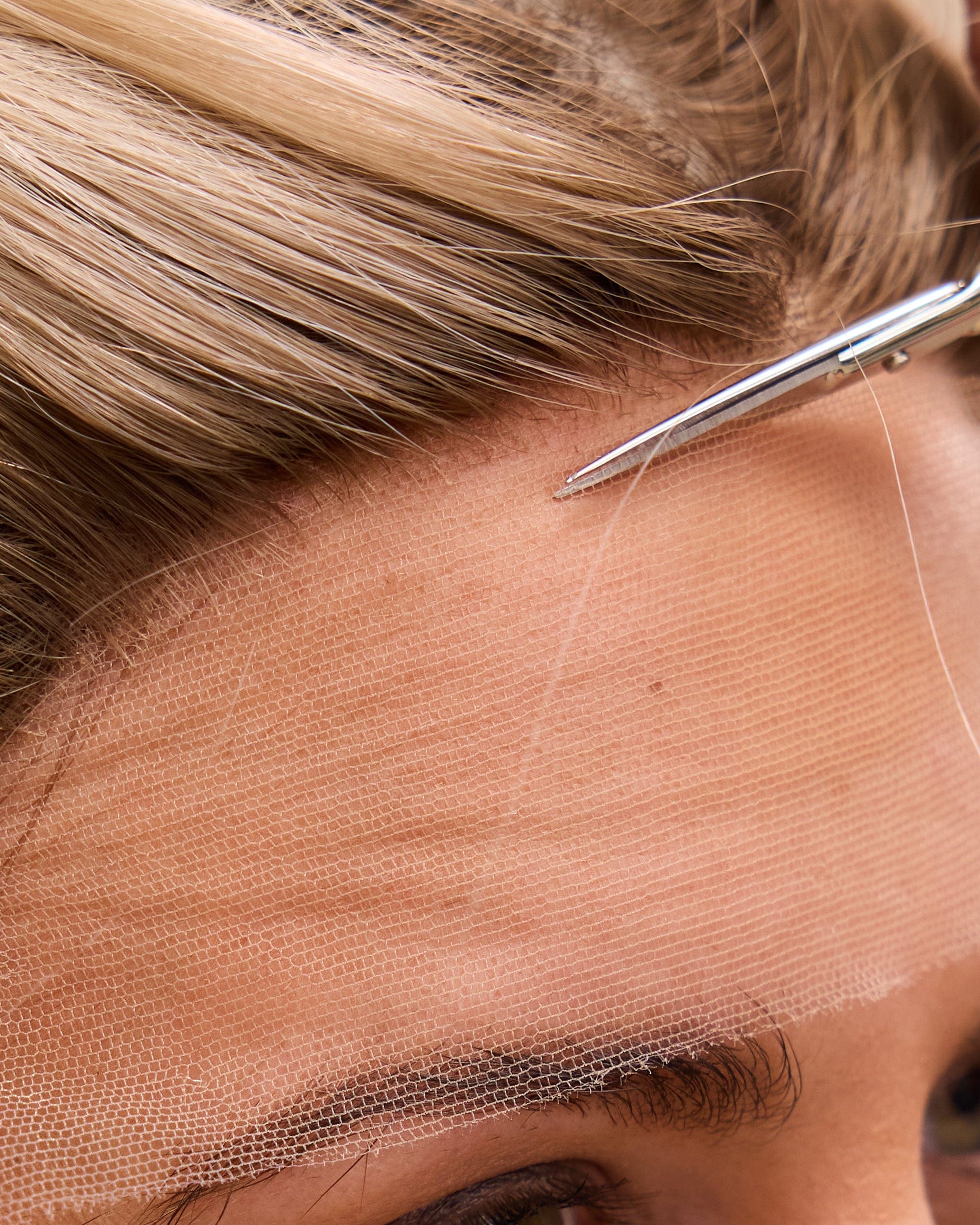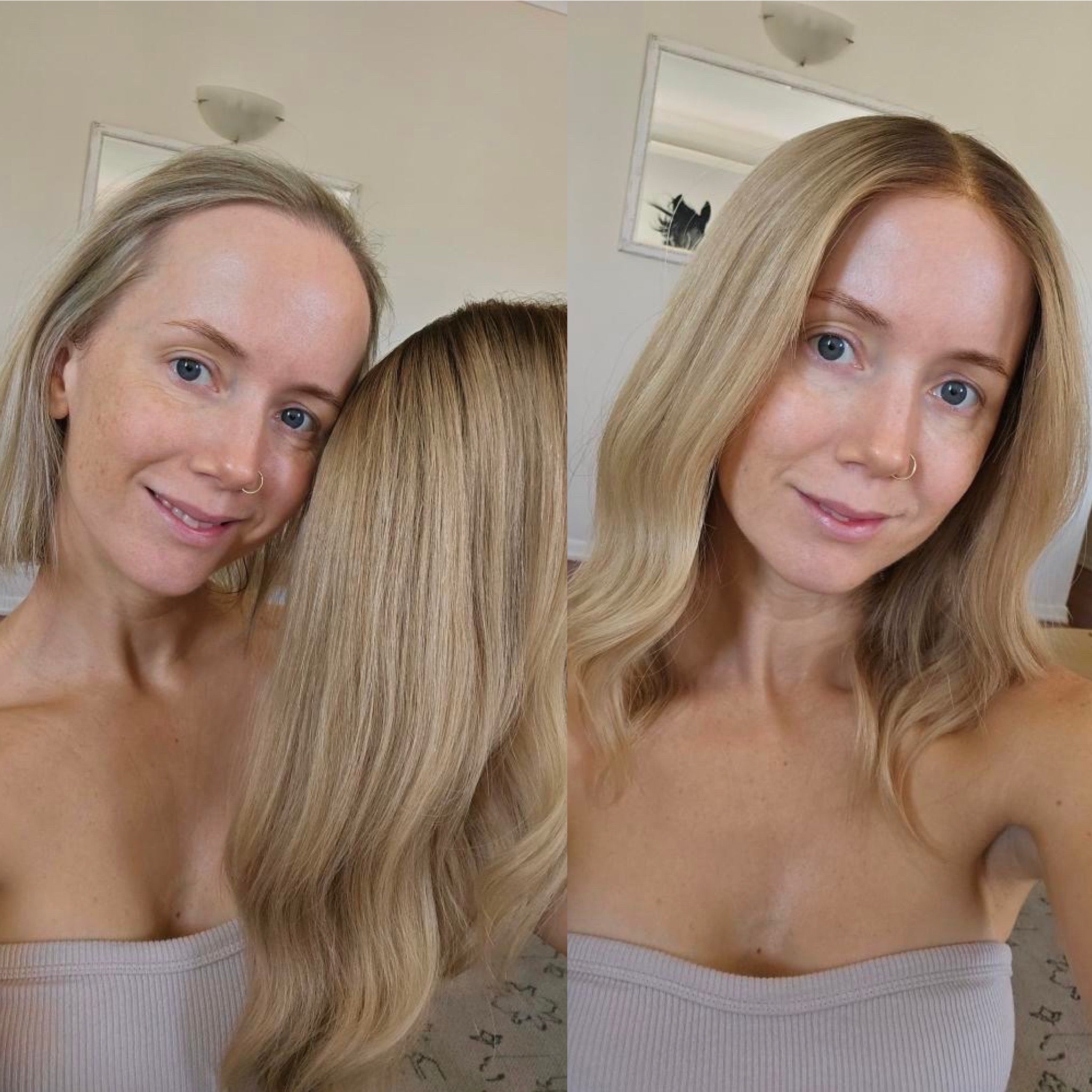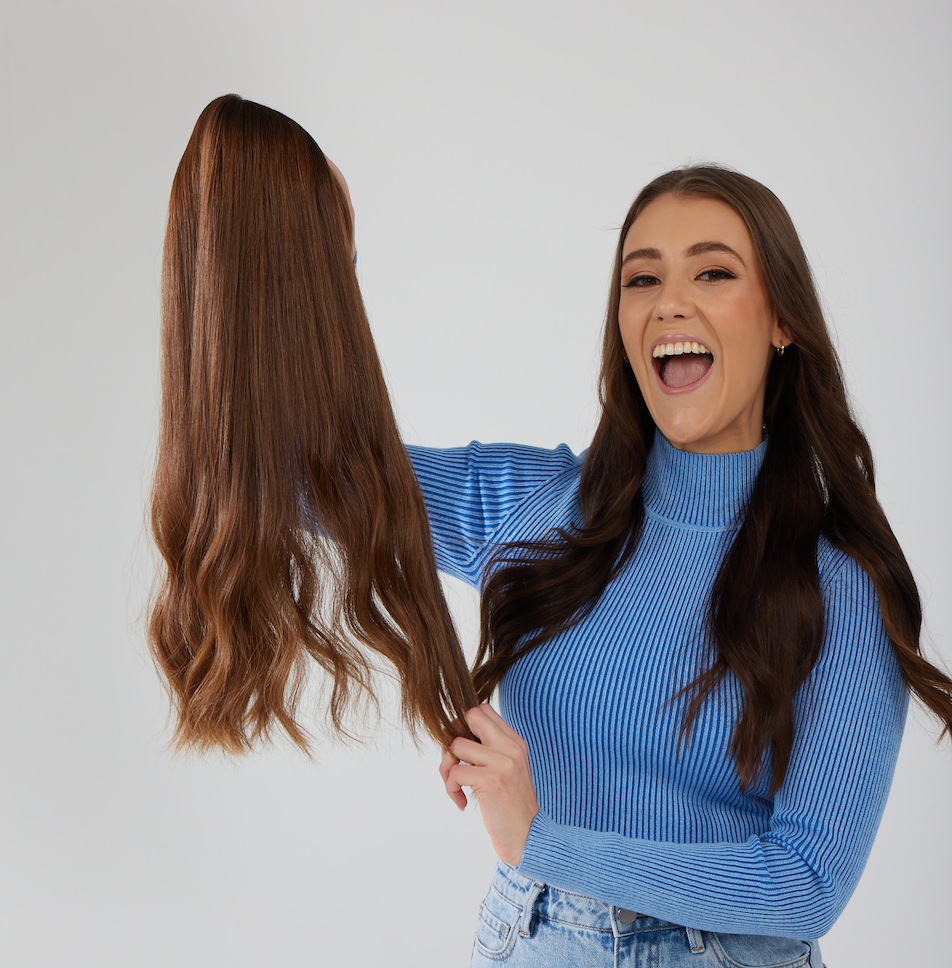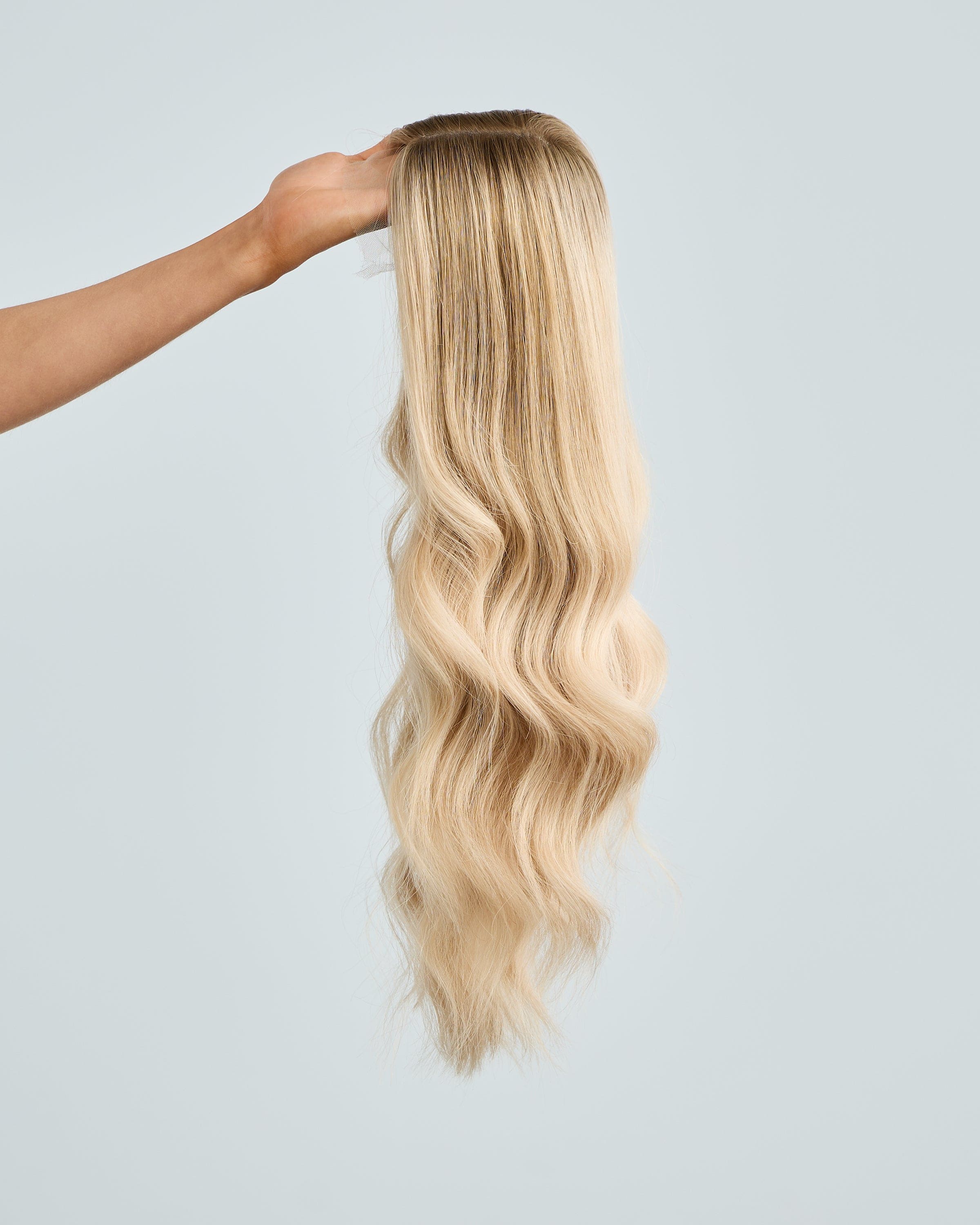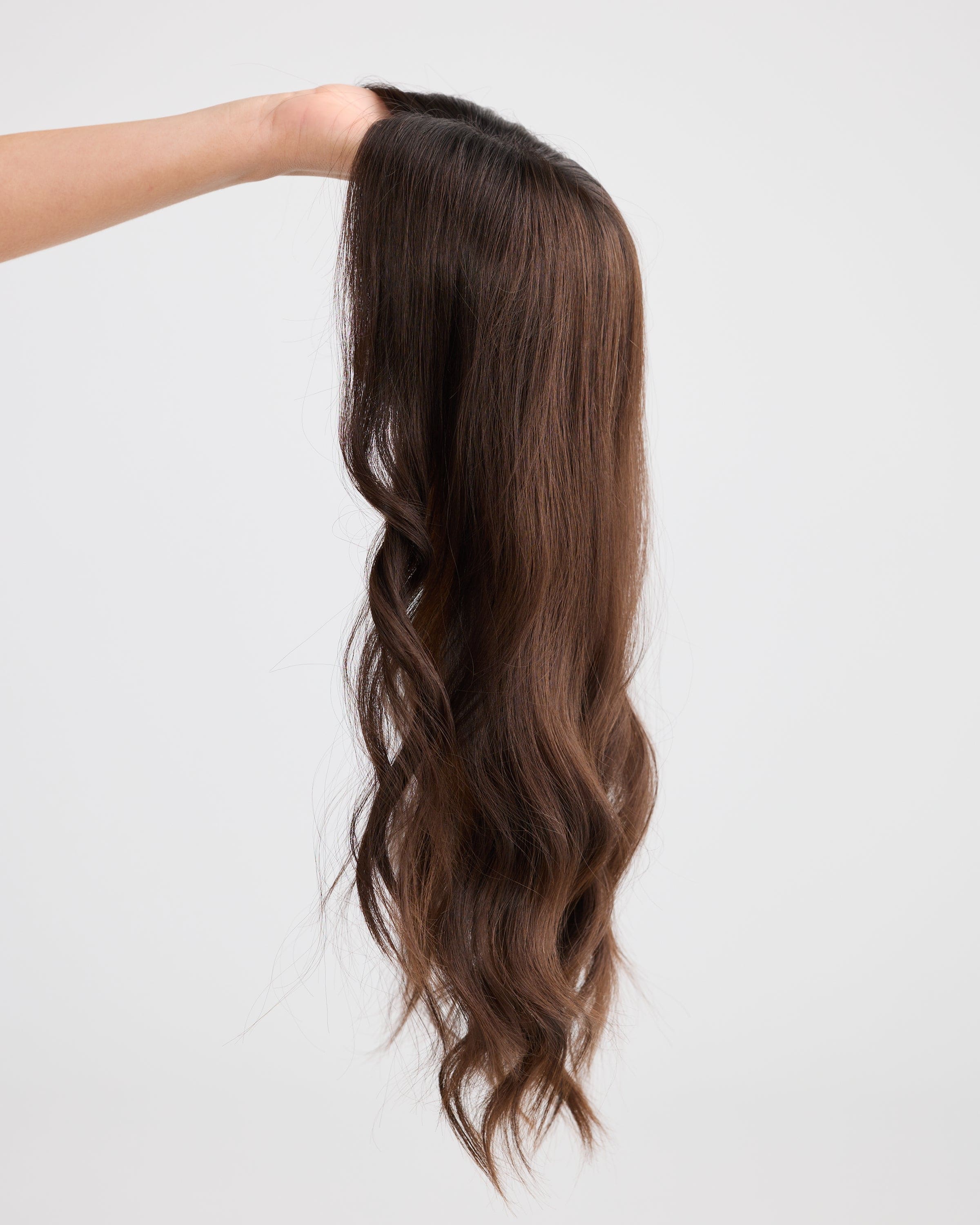Rosemary oil. Probably THE most talked about treatment for hair loss on the internet. I bet you've seen this all over TikTok, instagram and in all your google searches. It seems that just about everyone has tried it. But, has it worked for everyone?
Let's talk through everything you need to know about using rosemary oil to regrow your hair.
What is Rosemary Oil?
Rosemary oil is a fragrant essential oil derived from the rosemary plant (scientific name: Rosmarinus officinalis L.). Its fresh and herbaceous scent has made it a beloved ingredient in perfumes, lotions, and even culinary dishes.
Historically, rosemary oil has held a significant place in various cultures. The ancient Egyptians, Romans, and Greeks all incorporated rosemary into their religious rituals and traditional medicines, believing it to be a symbol of remembrance and protection.
One of the predominant uses of rosemary oil is in aromatherapy. Due to its invigorating scent, it's believed to help alleviate fatigue, boost mental clarity, and improve concentration. When massaged into muscles, rosemary oil may also provide relief from aches and pains, making it a favorite among athletes and those with physically demanding jobs.
Its potential benefits don't end there. Packed with antioxidants and anti-inflammatory properties, rosemary oil has also been touted for its skincare benefits, helping in reducing acne and preventing signs of aging.
For hair care, real rosemary oil's 100% natural composition makes it an appealing choice, especially among those wary of chemical-laden products. It's said to stimulate blood circulation to the scalp, thereby encouraging hair growth. This feature makes it particularly popular among women experiencing hair thinning or loss.
However, it's crucial to remember that while rosemary oil offers many potential benefits, it should be used appropriately and in moderation. Consulting with a professional or dermatologist, especially when using it for therapeutic purposes, is always recommended.
Is Rosemary Oil Scientifically Proven to Grow Back Hair?
In 2015, the whole hair loss world went crazy. A study was released by a team of Iranian researchers. They conducted research on the effectiveness of rosemary oil vs minoxidil 2% (minoxidil is one of the most prominent forms of medication used to treat hair loss). The study included 100 male participants with androgenic alopecia. Half of them used rosemary oil and half of them used minoxidil over a 6 month period.
What did they find? Rosemary oil was just as effective as regrowing hair as minoxidil.
This was the first study of its kind. Previously, rosemary oil had only ever been tested on mice. Now there was evidence that rosemary oil was an effective treatment for growing back hair. It was crazy! Many people with hair loss were so excited at the fact they could switch from using minoxidil (which often comes with a host of side effects) to a more natural option and see the same results.
As soon as people saw the headline 'Study Proves Rosemary Oil Grows Your Hair Back', they jumped on it. But, when you take a closer look at this study, everything isn't how it seems...
Take a look at the table below. This includes the results from the 2015 study. The graph shows the average hair count of participants in each group at the beginning of the study, 3 months in and 6 months in. Notice that all those bars look pretty much the same?

Although participants did experience hair growth, the results were quite insignificant. In fact, on average participants only experienced a 5% difference in hair count.
Another thing to consider about this study is that there was no control group (i.e. there was no group in this trial who weren't using minoxidil OR rosemary oil). This means that the study is missing something super important- seasonality.
Did you know that you hair gets thicker and thinner with the seasons? It's an evolutionary thing. In winter our hair gets thicker to keep us warm and in summer it thins out to keep us cool. Since there was no control group in this study, we have no way of knowing whether that 5% difference was due to the treatments or due to regular hair growth and loss cycles.
However, that's not to say that rosemary oil is absolute rubbish for your hair and scalp health. Not at all. Rosemary oil has been proven to have anti-inflammatory properities and if your hair loss is due to inflamation, rosemary oil could help. Rosemary oil can also help to nourish and moisturise your hair, helping it to feel super soft and silky.
So, is rosemary oil scientifically proven to cure your hair loss? Unfortunately, not really. Could it help a little bit? Maybe.
Is Rosemary Oil Safe to Use?
Generally speaking, rosemary oil is safe to use on your scalp. However, some people may experience adverse effects.
-
Allergic Reactions: Some individuals may be allergic to rosemary oil, which can manifest as skin irritation, redness, or even hives. It's always a good idea to conduct a patch test on a small area of your skin before applying it widely to the scalp. This will help you determine if you have any adverse reactions.
-
Pure Form Strength: Rosemary oil in its pure form is potent and can be too strong for many scalp and hair types. To avoid potential skin irritations or burns, it's crucial to dilute it with a carrier oil like jojoba oil, coconut oil, or almond oil before application. A common recommendation is to add a few drops of rosemary oil to an ounce of your chosen carrier oil.
-
Pregnancy and Medical Conditions: Pregnant women are advised to consult with their healthcare provider before using rosemary oil as it can stimulate menstruation or affect the uterus. Moreover, those with high blood pressure or epilepsy should exercise caution and speak with a doctor before using rosemary oil.
-
Interactions with Medication: Rosemary oil may interfere with certain medications or conditions, including drugs for diabetes, anticoagulants, ACE inhibitors, diuretics, and lithium. If you're on any medications, consult with a healthcare professional before incorporating rosemary oil into your regimen.
How Much Does Rosemary Oil Cost?
-
Purity and Quality: Pure, 100% essential rosemary oil tends to be more expensive than oil blends or those with additives. The method of extraction, typically steam distillation, can also affect quality and price. Oils that are therapeutic-grade, indicating they are pure and high-quality, will generally come with a higher price tag.
-
Origin and Brand: Rosemary oil sourced from traditional regions, such as the Mediterranean, might carry a premium due to their perceived superior quality. Brand reputation also plays a significant role; well-known brands with established reputations in the essential oil market tend to price their products higher.
-
Packaging and Volume: The size of the bottle affects the cost. Buying in bulk or larger quantities typically reduces the per-milliliter cost. However, the packaging, including UV-protected bottles that prevent the oil from degrading, can add to the overall cost.
A10ml bottle of good quality pure rosemary essential oil can range from $5 to $15. However, prices can vary based on location, retail markups, and other factors.
How Should You Use Rosemary Oil for Hair Growth
1. Choose the Right Rosemary Oil: First and foremost, ensure you’re selecting pure rosemary essential oil. Avoid products with added fillers or artificial fragrances, as they might not deliver the desired results and could even be harmful.
2. Mixing with Leave-in Conditioner: For everyday application:
- Take a dollop of your favorite leave-in conditioner in your palm.
- Add 2-3 drops of rosemary essential oil.
- Mix the two well before applying to your hair, ensuring you cover the roots to the tips.
This not only gives your hair the benefits of rosemary but also keeps it conditioned, minimizing the risk of dryness or breakage.
3. Hot Oil Treatment: Another popular method is a hot oil treatment:
- Mix rosemary oil with a carrier oil like coconut, jojoba, or almond oil. A good ratio is 5-6 drops of rosemary oil to every 1 ounce of carrier oil.
- Warm the mixture slightly (ensure it's warm, not hot).
- Apply to the scalp and hair, giving your scalp a gentle massage to boost circulation.
- Wrap your hair in a towel and leave it on for 30 minutes to an hour.
- Wash off using a gentle shampoo.
4. Hair Rinse: Post-shampooing, you can use a rosemary rinse to stimulate the scalp:
- Boil a handful of rosemary leaves in water.
- Allow it to cool down and then strain the liquid.
- Add a few drops of rosemary essential oil.
- Use this mixture as a final rinse after washing your hair.
5. Incorporate in Hair Masks: You can also enhance your regular hair masks by adding a few drops of rosemary oil.
6. Direct Scalp Massage: While it's always advised to dilute essential oils, if you're comfortable, you can mix a few drops of rosemary oil with a carrier oil and directly massage it into your scalp. This stimulates blood flow, encouraging hair growth.
Precautions:
-
Patch Test: Before you start regularly applying rosemary oil, do a patch test to ensure you don't have any allergic reactions.
-
Avoid Overuse: While rosemary oil is beneficial, using too much can lead to scalp irritation. Always dilute essential oils and avoid excessive use.
-
Pregnant or Nursing Women: It's advised for pregnant or nursing women to consult with their healthcare provider before using rosemary oil or any essential oil.
Kim's Experience
Kim is no stranger to rosemary oil (and peppermint oil, black seed oil, etc.). In fact she used them for years. And like most androgenic alopecia girls, the results weren't very impressive. Nowadays Kim is more inclined to use rosemary oil as a calming essential oil which promotes focus 😂











